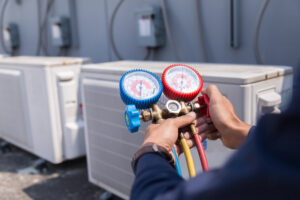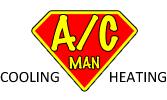Addressing The Musty Smell Of Your Home Or Business With An Experienced HVAC Technician In Houston
Have you been plagued with a musty smell that continues to stick around your business or your home? This is why you’ll need to act on it, and quickly:
 Living with a bad smell isn’t just unpleasant, it can actually cause ongoing physical symptoms such as headaches.
Living with a bad smell isn’t just unpleasant, it can actually cause ongoing physical symptoms such as headaches.
Bad smells can also be embarrassing if you have visitors to your office or your home.
If you’re talking about a business space like a restaurant or store, it may hurt your profit margin by driving away employees and customers.
Worse, what you may observe to be a very slight odor could seem much worse to others entering the building. This is because individuals can become used to odors over time. You may have become “nose blind” and stopped noticing the musty smell, but new visitors to the property may be aware of it from the second they enter the building.
We’re sure that you’ve already tried all the simple things like air fresheners for your home and office. You’ve likely already tried using an odor eliminator for mildew, as well as completely cleaning the space. You may have also tried office or home air purifiers.
However, if the smell of mildew or must continue, there’s a good chance that it’s closely related to your HVAC system and how well it’s working.
There are numerous ways that the HVAC system can contribute to a musty smell:
Layers of grime and built up dust and dirt in your HVAC system’s ducts may cause an overall musty odor that spreads through the building along with the air that has been heated and cooled.
Additional moisture can cause mildew and mold, and along with them, bad smells.
Poor HVAC system design may also cause bad airflow conditions, which can spread unpleasant odors from one area of the building to another.
Clean Your Entire Houston HVAC System To Get Rid Of The Musty Smell Completely
If you think that your HVAC system could be playing a part in the musty smell that you’re experiencing, one of the first things you should do is to set up a complete inspection of your HVAC ductwork and equipment.
A skilled HVAC professional should look for the following:
- Clogged Air Filters
- Dirty Ducts – It’s amazing what can lurk here, from mold to pest infestations.
- Clogged Drains – Along with other issues leading to excess moisture and mildew buildup
- Inadequate Ventilation – This and other system design issues can spread odors around
If it’s been a while since you had your HVAC system serviced, it’s likely that one fairly inexpensive maintenance visit and a duct cleaning may be all you need to eliminate the musty smell that you’re experiencing.
You’ll also want to keep up with ongoing regular service, to keep the smells from coming back. This will also help prevent system breakdowns, help you save energy, and provide you with many other benefits. The least expensive way to do this is to sign up for an ongoing service contract with a reliable HVAC service professional.
It could also be possible that ongoing issues with your HVAC system’s design are contributing to the overall odor problem.
Improve HVAC Airflow to Eliminate Unpleasant Odors
Your HVAC system was designed to regulate the airflow through your commercial space and your home. Properly controlled flow of air is important for both comforts and for controlling odor.
Here’s an example:
Areas of your home like bathrooms and kitchens may have odors that you don’t want to linger. Your HVAC and your ventilation equipment, such as fans, ducts, and vent hoods, should be installed with the goal of getting rid of these odors and not spreading them throughout your space.
This means that the system needs to balance the air that is mechanically removed from the home and circulate it around the building correctly while adding air from outside.
If the balance is off, it’s far too easy for odors to travel where they aren’t wanted.
The solution may be to change the location of vent fans, add an additional air unit, or reroute the ductwork.
Call or contact us today for more information. Visit our blog for more related articles.
